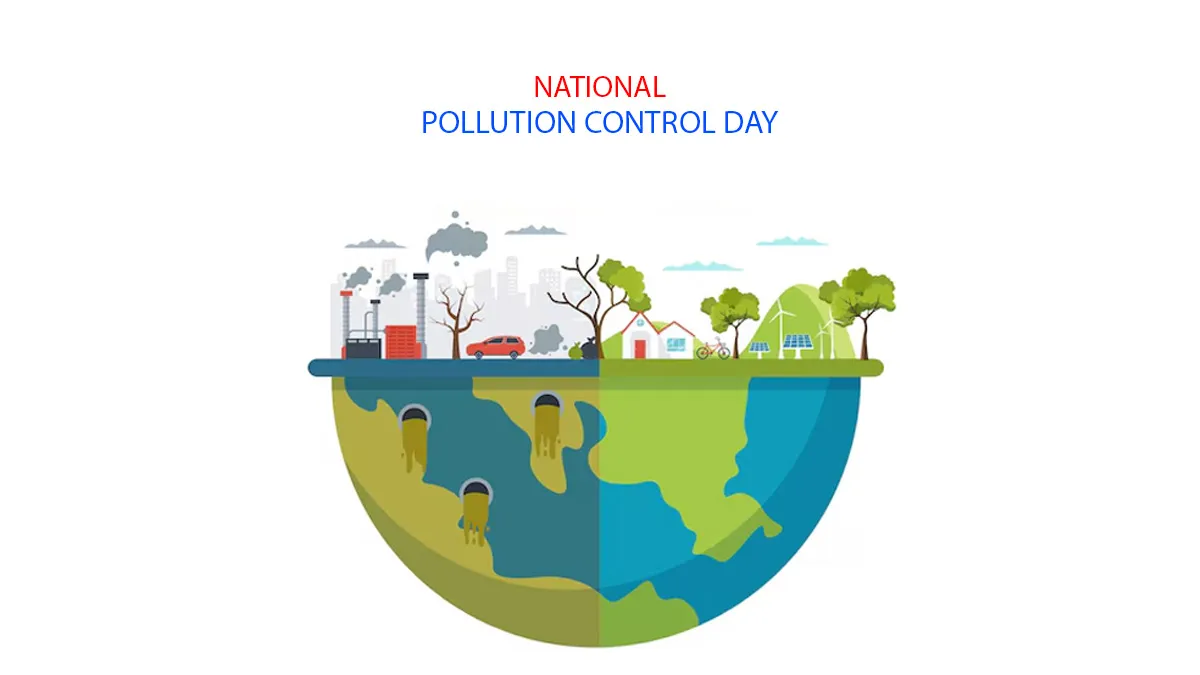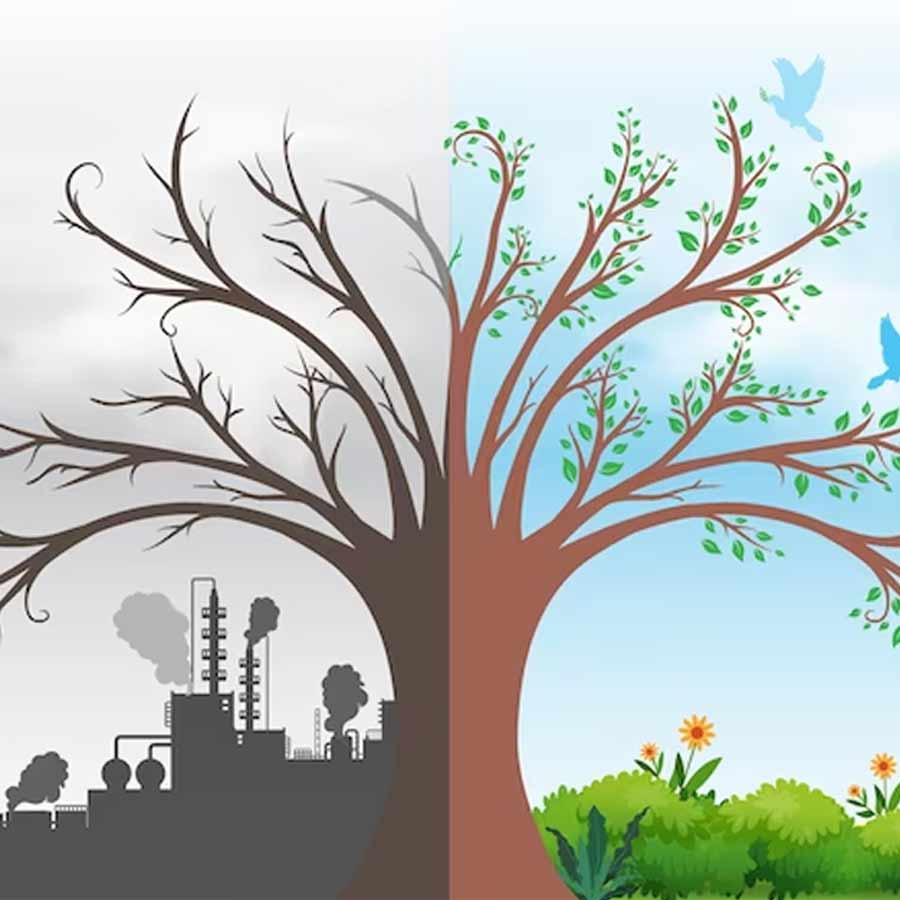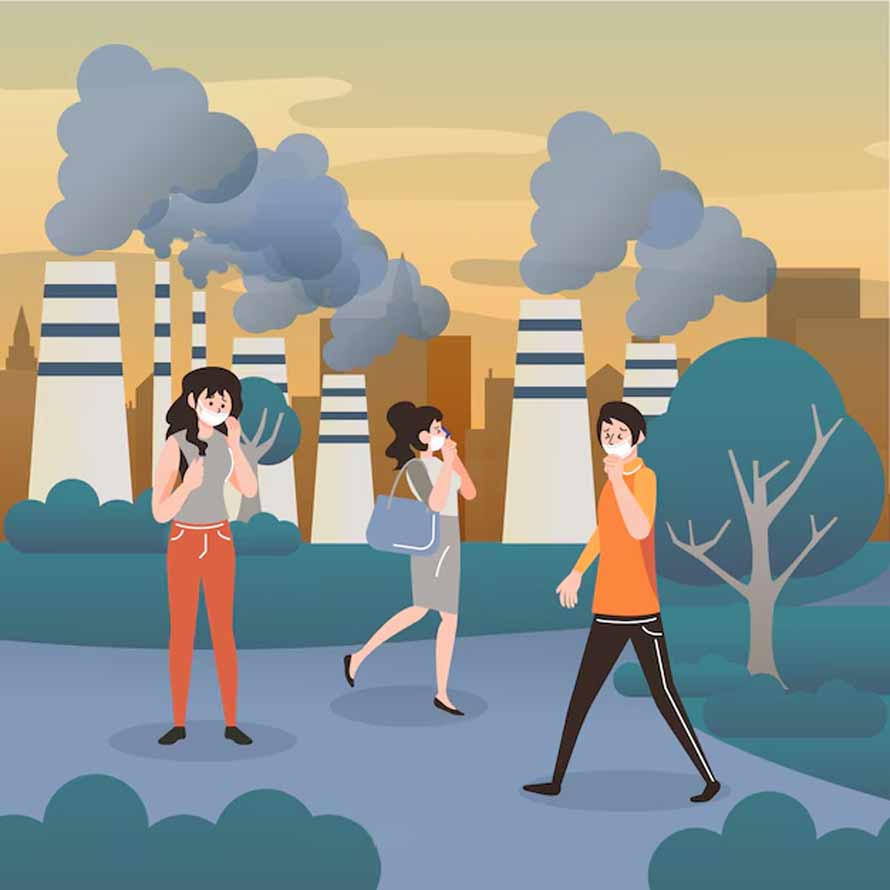
National Pollution Control Day, observed annually on December 2nd, is a day dedicated to raising awareness about the significance of pollution control and the urgent need to protect our environment. This day serves as a reminder to everyone, from individuals to industries and governments, of the dangerous effects of pollution on human health, ecosystems, and the planet as a whole.
With the onset of winter this year, New Delhi's air quality has been dangerously bad for almost a month now. On October 30, 2024, it first dropped into the ‘Very Poor’ category and stayed there for 15 days. Health experts are now warning that long-term exposure to polluted air can lead to serious problems like lung cancer, even for people who don’t smoke. And because of this rise in air pollution, even healthy people are at risk of this harmful air, especially in places with poor air quality.
National Pollution Control Day is observed every year on December 2 in India. It’s a day to raise awareness about pollution and its harmful effects on the environment and health.

Each year, National Pollution Control Day is observed with a specific theme aimed at addressing pressing environmental issues. The National Pollution Control Day theme for 2024 is: ‘Clean Air, Green Earth: A Step Towards Sustainable Living.’
Don't miss: Delhi-Based Couple Used This Unique Method To Reduce AQI Inside Home To 10-15: Know All About It
National Pollution Control Day was first commemorated in India in 1984 to honour the victims of the Bhopal Gas Tragedy, one of the world’s most catastrophic industrial accidents. On the night of December 2-3, 1984, a gas leak at the Union Carbide pesticide plant (UCIL) in Bhopal, Madhya Pradesh, resulted in the death of thousands of people and caused long-term health issues for many more (as per Department of Chemicals & Petrochemicals, Ministry of Chemicals & Fertilizers). The tragedy highlighted the lack of proper pollution control measures in industries, and it triggered a stronger push for environmental regulations and the need for safer industrial practices.
The primary aim of National Pollution Control Day is to recognise the importance of pollution control measures and promote sustainable practices that can mitigate environmental damage.
Don't miss: 5 Tips To Improve Indoor Air During Winters
One of the most pressing environmental issues that requires immediate attention is air pollution. Poor air quality is a major concern in urban areas and industrial zones, contributing to health problems such as respiratory diseases, heart conditions, and even premature deaths. But there are several ways we and governments can adopt to reduce air pollution:

One of the most effective ways to reduce air pollution is by transitioning from fossil fuels to renewable energy sources like solar, wind, and hydroelectric power. These energy sources do not produce harmful emissions and are more sustainable, helping to reduce the carbon footprint and the pollutants released into the atmosphere.
Reducing the number of vehicles on the road is crucial in curbing air pollution. Governments and cities can encourage the use of public transportation or electric vehicles (EVs) by investing in infrastructure such as bus and train systems, as well as charging stations for electric cars. Shifting away from traditional gasoline-powered vehicles will significantly reduce the emissions of nitrogen oxides, carbon monoxide, and particulate matter.
Creating more green spaces in urban areas can help absorb pollutants and improve air quality. Parks, trees, and vegetation can act as natural air filters, reducing the concentration of harmful gases in the atmosphere. Urban planning should prioritise green infrastructure, including planting trees along streets and building green roofs.
Individuals can also play a significant role in reducing air pollution by adopting energy-efficient practices in their homes and workplaces. This includes using energy-efficient appliances, reducing energy consumption, and avoiding unnecessary burning of wood or fossil fuels.
Waste burn up is another major contributor to air pollution. By reducing the amount of waste generated and increasing recycling efforts, we can reduce the need for incineration, which produces harmful emissions. Composting organic waste is another eco-friendly practice that can help lower the burden on landfills.
By raising awareness and adopting practical solutions to reduce air pollution we can make a significant impact and make the world a better place.
For more such stories, stay tuned to HerZindagi.
Image credit: Freepik
Also watch this video
Herzindagi video
Our aim is to provide accurate, safe and expert verified information through our articles and social media handles. The remedies, advice and tips mentioned here are for general information only. Please consult your expert before trying any kind of health, beauty, life hacks or astrology related tips. For any feedback or complaint, contact us at [email protected].